Napoleon Bonaparte (1769 – 1821) is considered one of the greatest military commanders in history. Starting as a second lieutenant in a French regiment, he rose to prominence during the French Revolution as a general of the Revolutionary government against the Royalist forces. He rapidly rose through the ranks through his military genius ultimately becoming the Emperor of the French in 1804. The army commanded by him is known as the Grande Armée (Great Army) and he led it to a series of historic victories that gave the French Empire an unprecedented grip on power over the European continent. Hugely popular among the masses, Napoleon also carried out various influential reforms including the implementation of Napoleonic Code, a legal code which served as a model for many countries across the world. Countries in Europe came together against Napoleon forming one coalition after another. He was triumphant against them for years but was finally defeated in the War of the Sixth Coalition. He was able to escape from exile to became Emperor again for a brief period but lost the famous Battle of Waterloo, ending his political and military career. Though many aspects of his life are controversial, Napoleon Bonaparte remains one of the most celebrated figures in history. Here are his 10 major accomplishments.
#1 HE DEMONSTRATED EXCEPTIONAL MILITARY SKILLS DURING SIEGE OF TOULON
Napoleon graduated from the prestigious Royal Military School of Paris in 1785 and was commissioned a second lieutenant in the La Fère artillery regiment of France. His initial military career was unexceptional as he took long leaves of absence. The French Revolution was widespread and violent by 1793. Some citizens had began supporting the Royalist faction and had taken up arms against the Revolutionary forces. France was at civil war and it was also engaged with other countries, who wanted to take advantage of the political scenario. Toulon was an important naval base in the south coast of France where the rebels had invited British Ships to take on the Revolutionary army. Toulon had excellent defenses and reclaiming it was a challenge.
The Revolutionary army began the siege of the port on 29th August, 1793. As destiny would play itself, the commander of the artillery division was injured during the conflict and the 24 year old Napoleon was promoted to his place. Napoleon showed great skill with his keen maneuvers and understanding of the terrain. He captured a hill from where the republican guns dominated the battle. The British were eventually forced to flee and the port fell soon afterwards. This remarkable victory made Napoleon an overnight hero and he was promoted to Brigadier General.
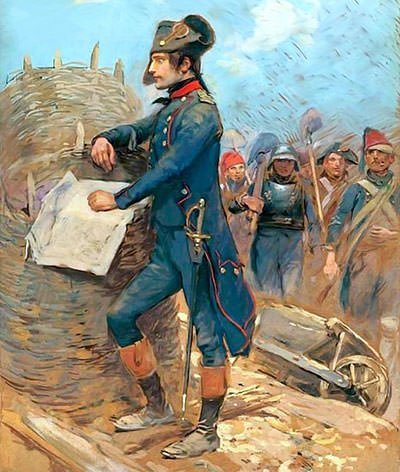
#2 HE WON THE BATTLE OF 13 VENDÉMIAIRE
Although the social reforms resulting from the French Revolution were received favorably by most people in France, many considered the Revolutionary Government as anti-Catholic. On 5th October 1795 or 13 Vendemiaire Year 4 according to the French Republican calendar, the Royalists gathered enough support to raise an armed rebellion against the National Convention. This led to the Battle of 13 Vendémiaire between the Royalists forces and the Revolutionary Government on the streets of Paris. Outnumbered at 5,000 against the 30,000 Royalist army, the government found itself in a precarious situation. Napoleon arrived at the Convention to inquire about the commotion. He was quickly ordered to take command under Paul Barras and defend the Republic. Barras, who knew of Bonaparte’s military exploits at Toulon, was content to let him take control.
Napoleon, realizing that artillery would be the key to defense, ordered his officers to seize large cannons and use them to repel the attackers. The cannons firing grapeshot into the massed royalist forces cleared the streets and battalions supporting the artillery also cut down the advancing Royalist ranks. Bonaparte commanded throughout the two-hour engagement and the legend of his calm and strategic military leadership grew. 19th century historian Thomas Carlyle famously summed the battle, Napoleon gave his opponents “a whiff of grapeshot”. The defeat of the royalist insurrection ended the threat to the Convention and made Napoleon a household name in France. He was promoted to Major General and Commander-in-Chief of the Army of the Interior.

#3 HE LED THE FRENCH TO VICTORY AGAINST THE FIRST COALITION
During the French Revolution, the First Coalition was established against France. It comprised of several nations including Austria; Prussia; England; and Piedmont and numerous other smaller Italian states. In March 1796 Napoleon left to command France’s Army of Italy against a series of battles and conflicts against the First Coalition. He attacked promptly with his 37,000 men against a larger Austrian army in the Battle of Montenotte. He then launched an all-out invasion of Piedmond, knocking them out of war within a few weeks. Placing Mantua under siege he inflicted a series of defeats on the Coalition in the battles of Lodi, Lonato, Castiglione, Bassano, Arcole and decisively at Rivoli in January 1797. Bonaparte became increasingly influential in French politics during the Italian Campaign. His army captured 150,000 prisoners, 540 cannons and 170 standards. They extracted an estimated $45 million in funds from Italy, another $12 million in precious metals and over three-hundred priceless paintings and sculptures.
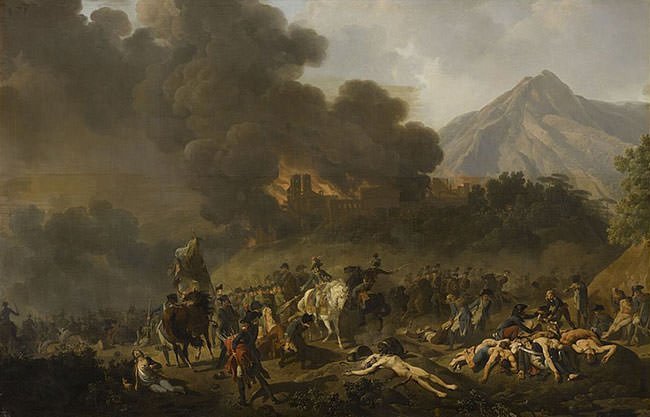
#4 He BECAME HEAD OF THE REPUBLICAN GOVERNMENT IN FRANCE
By June 1799, Emmanuel Joseph Sieyes was the most influential figure of the French Directory, a five-member committee which governed France. On his return from an expedition in Egypt, Napoleon got together in an alliance with Sieyès, his brother Lucien and others to overthrew the Directory and close down the Council of Five Hundred, the lower house. This coup took place on 9 November 1799 and is famously called the Coup of 18th Brumaire referring to the date according to the revolutionary calendar. Napoleon was made “first consul” for ten years confirming it by the new “Constitution of the Year VIII” and vetting it with a direct popular vote of over 99 percent with about 300,000 votes in his favor. Napoleon Bonaparte was successful in bringing about revolutionary reforms for the citizens of France while keeping religious leaders reasonably happy. Catholicism was made the state religion but freedom of worship was also assured. The lands and assets owned by the church were nationalized and French citizens could own and transfer their properties. Administrative departments were centralized; corruption and embezzlement were strongly dealt with; and law and order were maintained effectively.

#5 HE LAID THE FOUNDATION FOR MODERN FRENCH EDUCATION
Napoleon was keen on improving the business environment in France. He reformed the commercial and industrial sectors making trade restrictions lenient and providing support for trade. He encouraged small businesses providing loans from the Central Bank of France and reduced the rate of unemployment. The tax system was reformed making taxes simpler and direct. Land reforms were also brought about and government spent more on agriculture bringing in modern methods of farming. Napoleon also laid the foundation for modern French Education. He founded a number of state secondary schools, known as lycées, which were designed to standardize education across France. Through education, Napoleon aimed to build a strong and modern France focusing on science, math, military and political sciences. The University of France was founded by Napoleon in 1808. It had 17 branches or faculties distributed throughout France. University education was brought under state control and this ended the disagreement between the church and the state.
#6 HIS INFLUENTIAL CODE NAPOLEON SERVED AS A TEMPLATE AROUND THE WORLD
Attempts to bring a common civil code had failed during the revolution. In the first decade of the 19th century, Napoleon’s stature had grown and he used this to bring about a fresh code of laws that he deemed would carry the nation forward. The Code Napoleon was based on the idea that laws must be based on common sense and equality rather than on custom, societal division and the rule of kings. The moral justification for its existence was not that it came from God or a monarch (or in this case an emperor), but because it was rational and just. The code may seem rudimentary in many elements today but it was revolutionary in those times and for many years it was used as a template around the world. Napoleon was himself present at nearly half of the Senate discussions and the code was enacted in 1804 across the whole of France and, by 1807, across French controlled territories. The Napoleonic Code was used by many nations who wanted to move towards modernization through legal reforms. It has been called one of the few documents to have influenced the whole world.
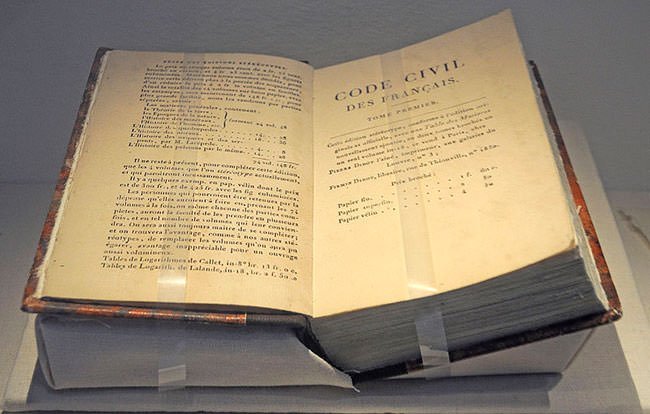
#7 HE ESTABLISHED HIMSELF AS A MILITARY GENIUS IN THE WAR AGAINST THE 3RD COALITION
War of the Third Coalition, spanning from 1803 to 1806, was fought between France against a coalition of the Holy Roman Empire, Russia, Austria, Britain and others. Knowing the strength of the British Royal Navy, Napoleon employed diversionary tactics but the plan failed and British were victorious at Battle of Cape Finisterre in July 1805. Realizing his weakened position, he then planned to destroy the Austrian armies before they were joined by their allies from Russia. The French Army marched with secrecy and attacked the Austrians at the fortress at Ulm. They performed what is now called the Ulm Maneuver. They cut off the Austrians and captured 60,000 enemies at the loss of 2000 soldiers. The Battle of Ulm is widely regarded as a strategic masterpieces among war historians.
This was followed by the Battle of Austerlitz. Wanting to lure his enemies into battle, Napoleon feigned weakness on numerous occasions including abandoning the dominant Pratzen Heights near the village of Austerlitz. Deploying his army below the Pratzen Heights he deliberately weakened his right flank and lured the enemy in. He then plugged the gap just in time. The allied center was demolished and the French enveloped the enemy. Also known as the Battle of Three Emperors (Napoleon, Tsar Alexander I and Holy Roman Emperor Francis II), it is considered as a tactical masterpiece because of the near-perfect execution. The Battle of Austerlitz brought the Third Coalition to a rapid end and it is regarded as the greatest victory ever achieved by Napoleon and his Grande Armée.
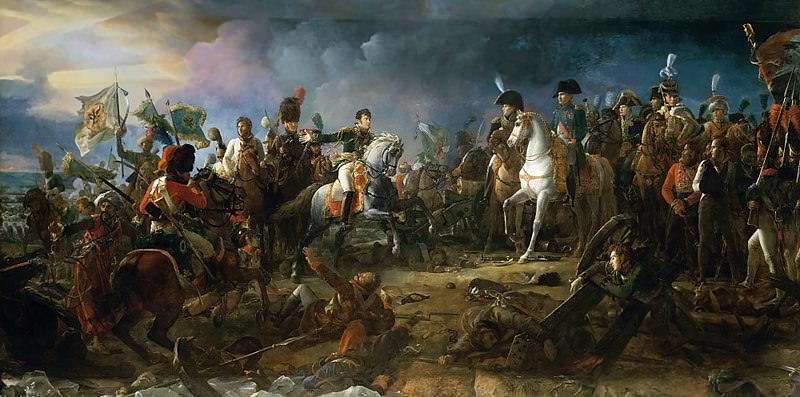
#8 He MADE FRANCE THE DOMINANT POWER IN EUROPE
After a British financed assassination plot was uncovered, Napoleon decided to increase his control and influence. He held a referendum and was elected as Emperor of the French by a tally exceeding 99%. He thus established what historians call the First French Empire. His coronation took place on 2nd December 1804. Napoleon reigned as emperor for a period of around 10 years; till April 6, 1814. In 1806, the Fourth Coalition was formed between Prussia, Russia, Great Britain, Sweden and Saxony against the rising French Empire. At this time, France was politically reorganizing German territory threatening the Prussian influence in the region and they decided to challenge the dominance. Napoleon invaded Prussia with 180,000 troops, rapidly marching on the right bank of the River Saale and handing them a crushing defeat in the Battles of Jena and Auerstedt. He then engaged with the Russian forces finally defeating them in the bloody Battle of Friedland on 14th of June 1807. Soon Czar Alexander pushed for peace leading to the Treatise of Tilsit.
These victories established Napoleon’s stronghold over most of Europe. His empire extended over much of Western Europe and into Poland. At its height in 1812, it had 130 departments and ruled over 70 million subjects. It maintained an extensive military presence in Germany, Italy, Spain and the Duchy of Warsaw, and could count Prussia and Austria as nominal allies. Napoleon thus made France the dominant power in much of continental Europe.
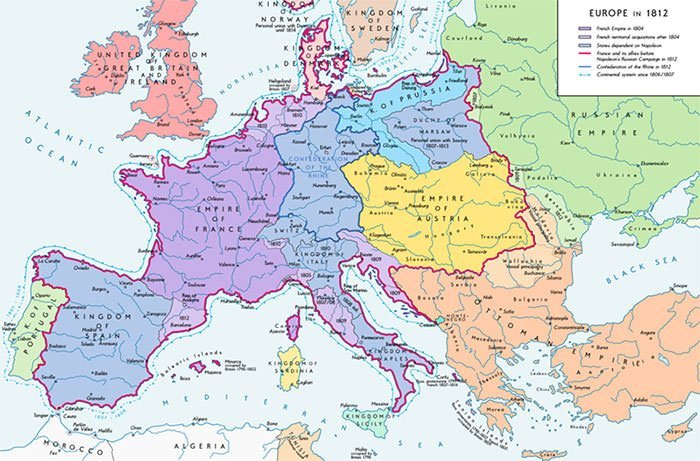
#9 HE WON THE BATTLE OF WAGRAM TO BREAK THE FIFTH COALITION AGAINST FRANCE
War of the Fifth Coalition was fought in 1809 between France and Bavaria and the coalition of Austrian Kingdom and Great Britain. It started on April 10 with the Austrian army under Archduke Charles invading Bavaria. When Napoleon hurriedly arrived on the 17th, the French army was in a perilous position with two wings separated by 75 miles joined only by a thin cordon of Bavarian troops. Napoleon needed to do something quickly to save his left flank. Napoleon realigned the Grande Armée’s axis in an operation that became known as the Landshut Maneuver. This led to the victory of the French in the Battle of Eckmühl. However, on May 21, Archduke Charles became the first to defeat Napoleon in the Battle of Aspern-Essling sending ripples across all of Europe. After the defeat, Napoleon planned for 6 weeks and then finally won a decisive victory in the bloody Battle of Wagram with Charles signing an armistice with Napoleon and agreeing to end the war. Although the Fifth Coalition ended, Britain, Spain and Portugal remained at war with France in the ongoing Peninsular War.
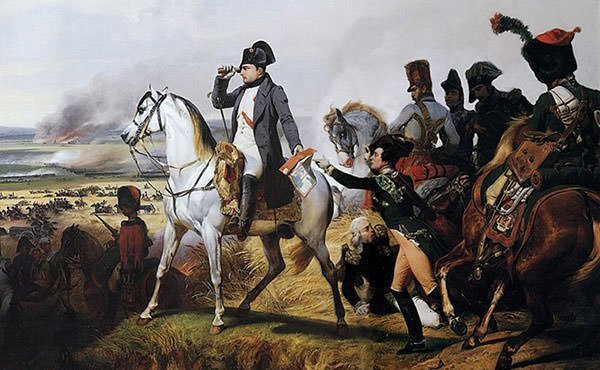
#10 HE ESCAPED FROM EXILE IN ELBA TO BECAME EMPEROR AGAIN
Napoleon was finally defeated in the War of the Sixth Coalition and announced his unconditional abdication on 6th of April, 1814. After his surrender, Napoleon was exiled to the Mediterranean island of Elba. After a few months, Napoleon escaped from Elba with 700 men on February 26, 1815. Two days later, he landed on the French mainland at Golfe-Juan. France was under the reinstated and unpopular Bourbon king Louis XVIII, who sent the 5th Regiment under General Ney to capture the outlaw. On 7th March the regiment intercepted Bonaparte who is said to have dismounted his horse, approached the soldiers and shouted “Here I am. Kill your Emperor, if you wish”. The regiment then marched with Napoleon towards Paris with a growing army forcing Louis XVIII to flee. When Napoleon drove up to the Tuileries Palace at midnight on March 20, he was greeted with delirious enthusiasm.
A Seventh Coalition came into existence with Great Britain, Russia, Austria and Prussia each pledging 150,000 men to defeat the reinstated emperor. Napoleon was defeated at the famous Battle of Waterloo marking the end of the French Empire and the Napoleonic Wars after 22 years of continuous fighting. Napoleon died in exile on the island of Saint Helena on May 5, 1821.
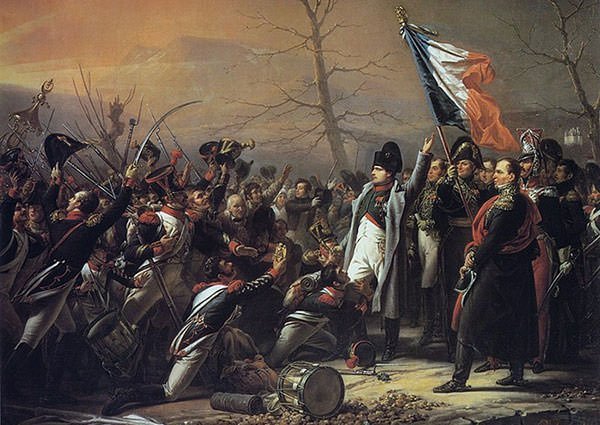
NAPOLEON AND THE ROSETTA STONE
In 1797 Napoleon launched an expedition to seize Egypt with the aim to cut off British trade routes to India. Perhaps knowing of the countries rich heritage Napoleon brought along scientists, engineers and scholars popularly known as savants in his campaign. The resultant work would later lead to the publication of a 23 volume Description de l’Égypte (Description of Egypt) published between 1809 and 1829. But eclipsing this was the discovery of the Rosetta Stone by Captain Pierre François Bouchard during demolition of a wall in Rosetta. Written in hieroglyphic, demotic and Greek, Rosetta Stone eventually proved to be the cipher that cracked ancient Egyptian hieroglyphs leading to understanding of ancient Egyptian history and birth of the entire field of modern Egyptology.

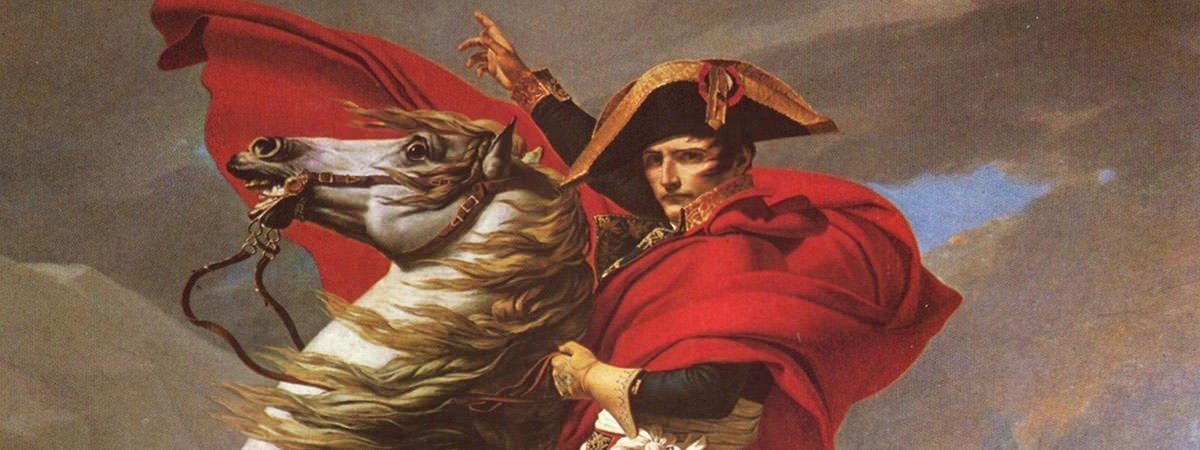
HE WAS A TRUE GENIUS……GOT BAD PRESS FROM THE ENGLISH
BECAUSE WE USE THE ENGLISH AS OUR BASESE FOR WORLD HISTORY.
HE AIM WAS TO OVER THROW THE KINGS OF EUROPE… WHICH WAS GOOD. AND EVEN STARTED THE CONCEPT OF SOCIAL SECURITY FOR. HIS PEOPLE IT TOOK THE ENGLISH A HUNDRED YEARS TO COME UP WITH THAT.
I was just sitting on my recliner and was contemplating on what good did Napoleon do in his lifetime.
Fortunately, I own a Smart Phone, and looked it up and found this well written composition on Napoleon.
In spite of his warring ways, he did accomplish a lot of good, both for France as well as the rest of the interested world.
Thank you for the intel
jt
Thanks for your appreciation.
This was a lifesaver for writing an argumentative essay on Napoleon, thanks!
You’re welcome.